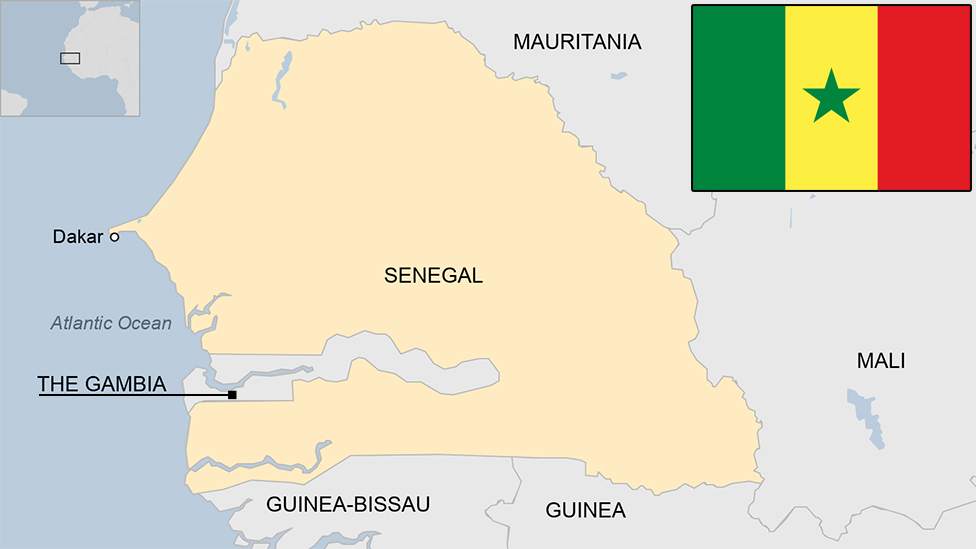Will Senegal be bowled over by big projects?
- Published
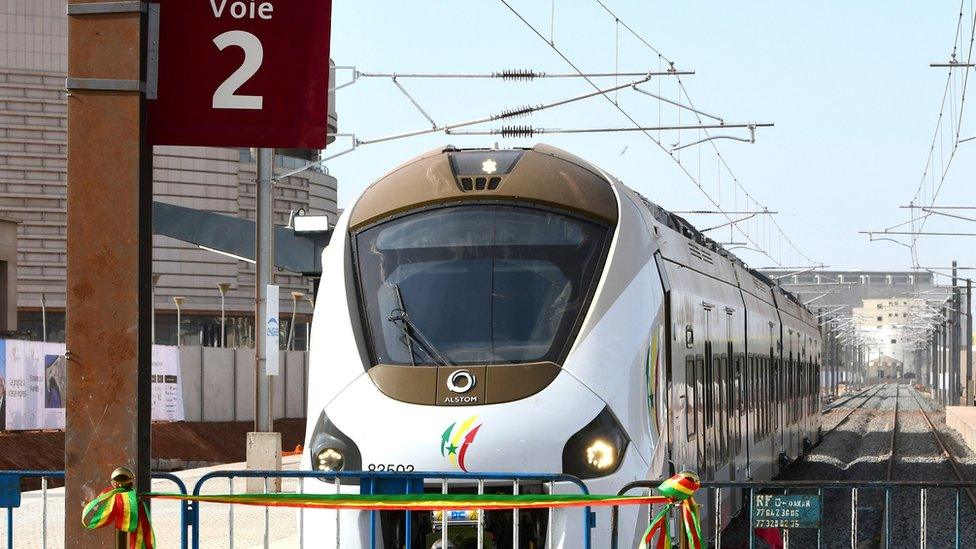
Senegal has witnessed a flurry of inaugurations of ambitious, big-budget projects in the last few months, including a new train line, a new bridge and the imposing Museum of Black Civilisations.
Happily snipping the ribbons has been President Macky Sall, who is seeking a second term in office in elections on Sunday.
"I will be voting for the first time and my choice is Macky Sall," said Mouhamad Thiam speaking to the BBC at a campaign rally in support of the president in the town of Kaolack, about 225km (140 miles) east of the capital, Dakar.
"I think his record is positive, his programme is positive, his accomplishments are positive."
But while the 57-year-old, who has been in office since 2012, is lauded by some for pulling off these schemes, many of which were initiated by his predecessors, others are more cynical about a more general lack of development.
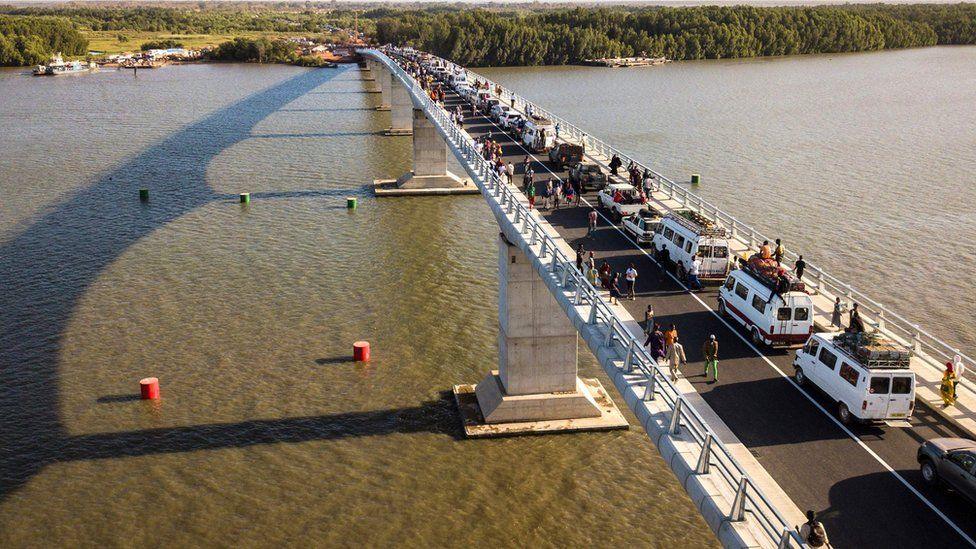
The Senegambia bridge links two side of The Gambia and eases travel from northern Senegal to the southern province of Casamance
These frustrations, and concerns that the electoral process is flawed, mean the incumbent may be surprised to see himself voted out of office.
In a country where nearly half the population lives below the poverty line many struggle to see how Mr Sall has improved their daily lives.
'Young people need jobs'
"These projects have no importance, it's all politics," said Mamadou Senghor, a motorbike taxi driver in Kaolack.
Senegal election 2019: What do youth want from next president?
"What's the point of building highways with tolls if young people don't have work to pay for them?
"Before building highways, you have to industrialise the economy so that young people can find jobs and support their families."
More than 6.6 million people are registered to vote in these elections, and who young people decide to support could have a significant impact, as the average age in the country is 19.

You may also be interested in:

Senegal, where there have been three peaceful transitions of power since independence in 1960, has long been seen as a model of stability in the continent.
But a number of politicians and human rights groups have raised concerns ahead of this vote.
"Senegal is definitely not a model," says Oumar Touré, also known as "Thiat", who is a well-known rapper and activist in the country.
"Macky Sall has made our country regress democratically."
Backlash
Many have criticised the Constitutional Council's decision to bar two main opposition candidates from running.
Both Khalifa Sall, the popular former mayor of Dakar, and Karim Wade, the son of the former president, were deemed ineligible to run because of corruption convictions.
As a result of the decision, neither of their two parties - the Socialist Party and Senegalese Democratic Party (PDS) respectively - which have dominated the country's political landscape since independence, have candidates in the upcoming election.
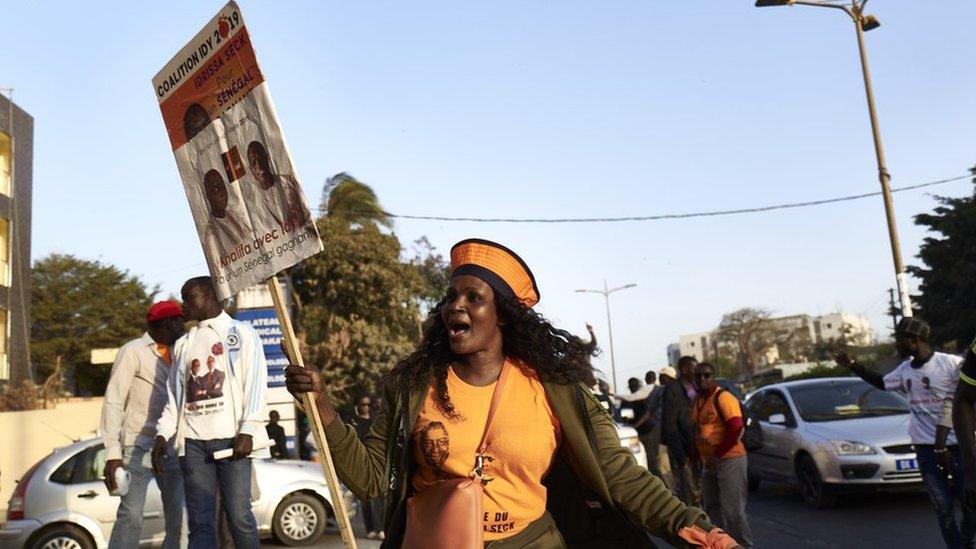
Some are supporting Idrissa Seck, backed by Dakar's former mayor Khalifa Sall, who was not allowed to run
"The race is already fixed," says Thiat, who is also a founding member of Y'en a Marre (Enough is Enough), a pro-democracy activist group.
"The process is fraudulent because there are candidates who have been put in prison for political reasons which aren't in the interests of the Senegalese people - meaning that our justice system has been manipulated."
The government denies those charges. But it is not the only criticism it has faced.
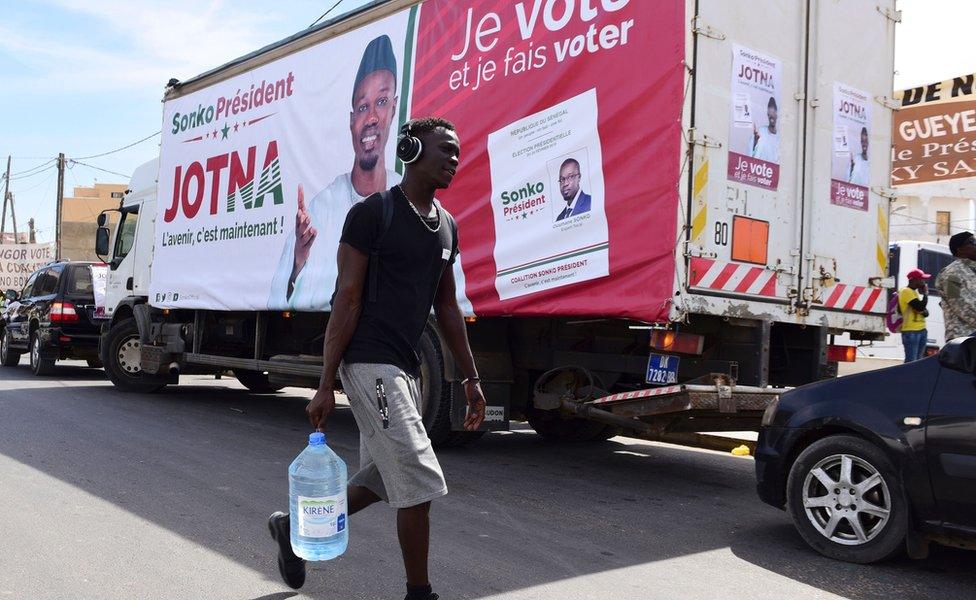
Ousmane Sonko is one of four challengers to President Sall
There was a backlash after a law was passed in 2018 requiring candidates to have a certain number of signatures from voters to be able to run.
As a result, only five candidates have been deemed eligible for the 24 February vote, compared to 12 in the last election.
The two top contenders apart from the incumbent are:
Idrissa Seck, a former prime minister who enjoys the backing of Mr Sall, Dakar's former mayor
Ousmane Sonko, a former tax inspector who is popular with the young
The remaining two candidates are El Hadji Issa Sall, who has a following among more religious and conservative voters and Madicke Niang, a former minister, who was once a close ally of former President Abdoulaye Wade, who lost the 2012 election.
Mr Wade has called on voters to boycott the vote, alleging it has been fixed in advance in favour of the incumbent.
The 92-year-old, who has been a leading political figure in the country since the late 1970s, is now calling on voters to attack polling stations, burn their voter cards and electoral rolls.
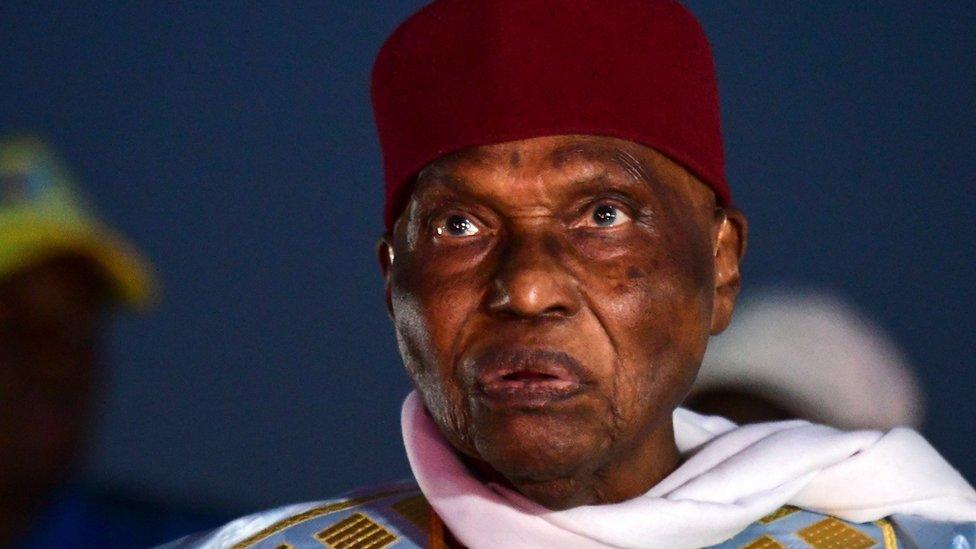
Former President Abdoulaye Wade urged people to attack polling stations
The government has warned that anyone involved in illegal action will be prosecuted, adding that Mr Wade's comments were irresponsible and subversive.
Mr Sall used to be a member of Mr Wade's PDS party, but he broke away to found his own coalition, APR-Yakaar.
In the run-off in 2012 he beat his former boss, who had been power for 12 years.
In the first round, Mr Wade had polled 34.8% and Mr Sall came second with 26.6%. But most of the other 12 candidates backed Mr Sall in the second round, securing his victory.
This time around he may get a taste of his own medicine if he fails to secure more than 50% in the first round and the opposition decide to join forces to push him out.
- Published6 December 2018
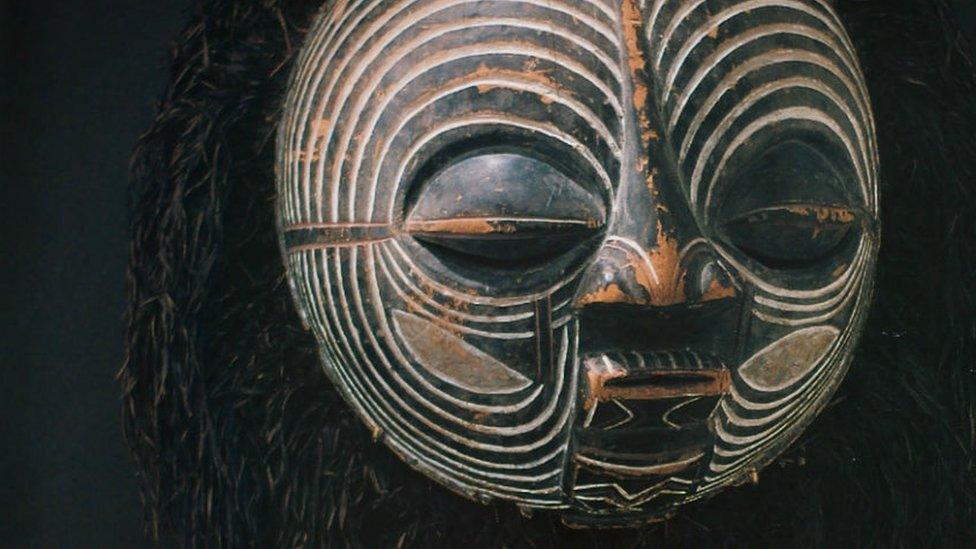
- Published23 January 2019
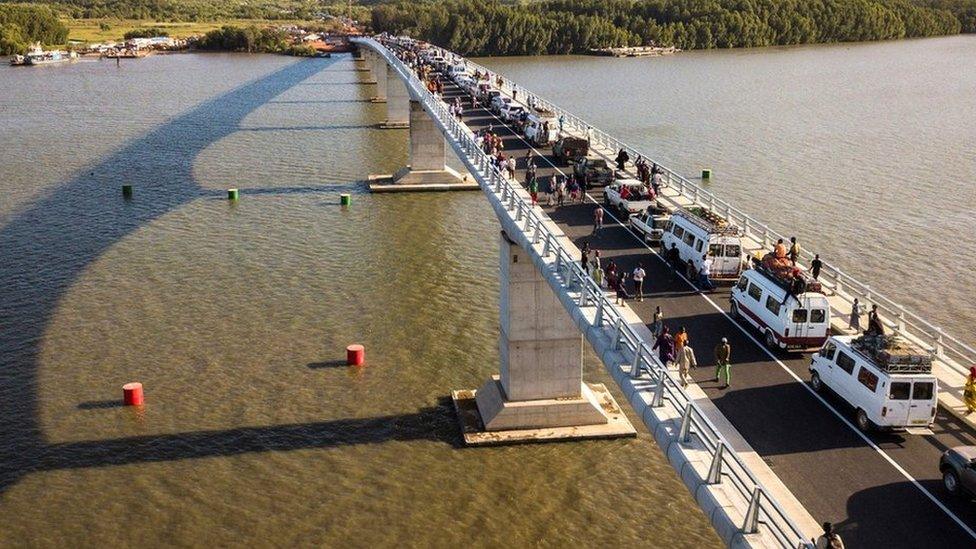
- Published1 November 2018
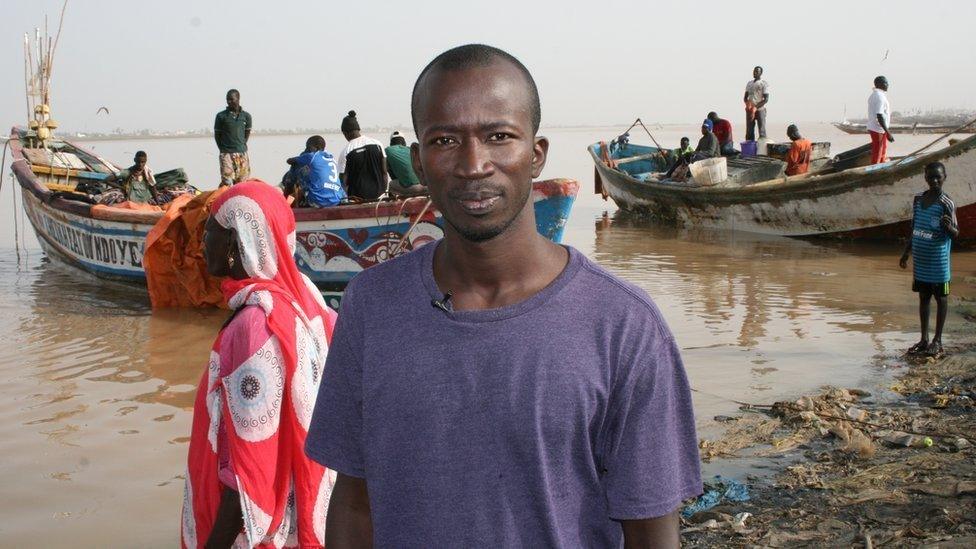
- Published9 July 2024
